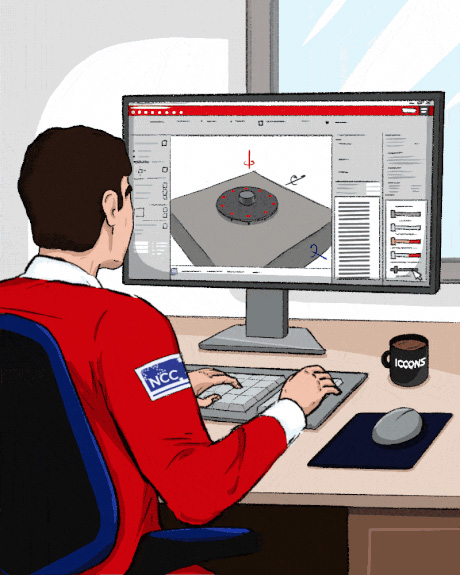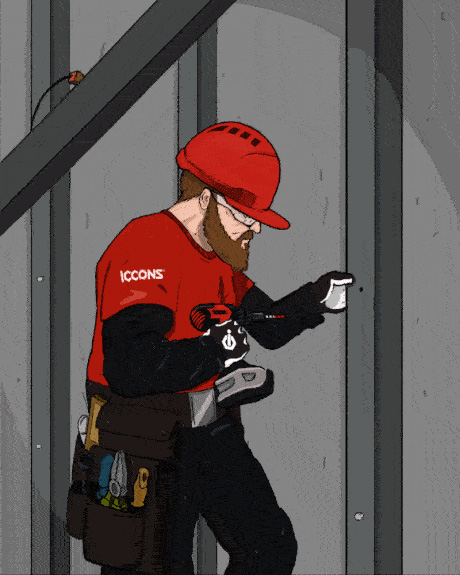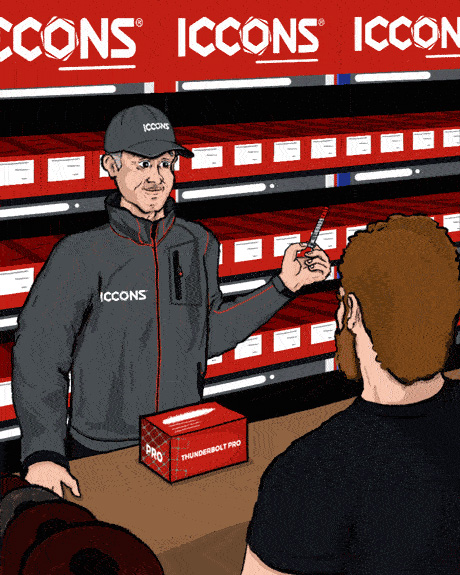What is a Concrete or Masonry Anchor?
In construction, the generic term “anchor” describes a broad variety of devices made of different materials, designed to fix (or anchor) different construction elements to the most common base materials (concrete, brick, plasterboard, steel, etc.)
Anchors are used every day in construction projects around the world and although being often considered a small portion of the overall construction scope, their function is of capital importance both from a functional and safety perspective.
Anchors can be grouped in different categories based on the material they are made of, the means by which they generate their holding force, their function, their approval level, and many more.
To perform efficiently, all anchors require to be properly selected, and properly installed.
Amongst the most common anchors we can mention Concrete Screwbolts, Structural Expansion Anchors, Through Bolts (often known as Wedge anchors) and Screwbolts (also called concrete anchors), Drop-in Anchors, Sleeve Anchors, Nylon Anchors, Wall Anchors etc.
Types of Concrete or Masonry Anchors
There are many types of Mechanical Anchors used in Construction designed for specific base material substrates or fixing requirements. Some key anchor types are:
How Concrete or Masonry Anchors Work
A complete understanding of how anchors work, starts from analysing the way they hold in a building material. There are three basic principles for an anchor to generate a fixing force:
- Friction: the tensile load applied to the anchor is transferred to the base material by means of expansion creating friction against the drill hole wall. Anchors that work on friction are typically called Expansion anchors. The most common type of expansion anchors are Sleeve Anchors and Through Bolts.
- Keying: The keying effect of concrete anchors refers to the mechanical interlocking or engagement between the anchor and the surrounding concrete material. Keying, in opposition to friction, does not stress the base material which can result in expansion cracks forming. The most common example of an anchor working on the keying principle are Screwbolts (also known as concrete anchors).
Some anchors may work on a combination of the above principles. When working with concrete, another important distinction is between Cast-in and Post-installed anchors. Cast-in anchors are installed before the concrete is poured and therefore does not require drilling. Post-installed anchors are installed after the base material is installed and require a drill hole to be drilled.
What are Anchors used for?
Mechanical anchors are commonly used in construction to secure objects or structures to concrete or other masonry surfaces. These anchors rely on mechanical means, such as expansion or keying mechanisms, to create a strong and stable connection. Mechanical anchors are versatile and find applications in various construction scenarios. Here are some common uses of mechanical anchors in construction:
-
Securing Structural Components: Mechanical anchors are used to attach structural elements like beams, columns, and supports to concrete foundations or walls. This ensures that these components remain securely in place, providing stability to the overall structure.
-
Anchoring Equipment and Machinery: Mechanical anchors are employed to secure heavy equipment, machinery, or fixtures to concrete floors. This is common in industrial settings, where ensuring that machinery remains in place is essential for operational safety and efficiency.
-
Fastening Handrails and Guardrails: Handrails and guardrails along staircases, balconies, or elevated platforms are often mechanically anchored to provide support and meet safety standard regulations.
-
Installing Façades: Mechanical anchors play a crucial role in attaching building façades, curtain walls, and cladding systems to the underlying structure. This helps maintain the aesthetic appearance of the building while ensuring the safety and stability of the façade.
-
Installing Racking Systems: In warehouses or storage facilities, mechanical anchors are used to secure shelving and racking systems to the floor. This ensures that the storage units remain stable and can support the weight of the stored items.
-
Attaching Signage and Lighting: Street signs, traffic signals, and outdoor lighting fixtures are often mechanically anchored to concrete or other structures to withstand environmental forces and ensure longevity.
-
Securing Services: Mechanical anchors are used to secure utility fixtures such as electrical boxes, conduits, and pipes to concrete surfaces. This ensures that these fixtures remain in place and maintain proper functionality.
-
Temporary Works: Mechanical anchors are employed in the construction of temporary structures, such as scaffolding or temporary fencing. They provide stability and prevent these structures from shifting or collapsing.
Anchor Suitable Base Materials
Anchors can be used in the following common base materials.
-
Concrete
-
Brickwork
-
Hollow and core filled block work
- Aerated Concrete (eg. Hebel)
-
Solid and hollow brickwork
-
Natural Stones (eg. Bluestone, Sandstone)
-
Asphalt
-
Plasterboard
-
Steel
ICCONS is dedicated to providing a complete design solution for your project. Further to our European Technical Assessments in masonry, we have further tested in Australian masonry to ensure that the loads can directly be tangible for your project. Please email
[email protected] to obtain further information on these reports.
Who should use Adhesive or Chemical Anchors
Specific trades which commonly use these products are:
-
Structural steel fabricators and installers.
-
Façade structure installers.
-
Civil contractors for roads, bridges and tunnels.
-
Balustrades and handrail contractors.
-
General contractors.
-
Crash barrier installers.
-
Formworkers (starter bar applications).
-
Shotcreters
-
Heavy electrical contractors.
- HVAC contractors.
-
Rail Infrastructure.
-
Remedial works contractors.


























